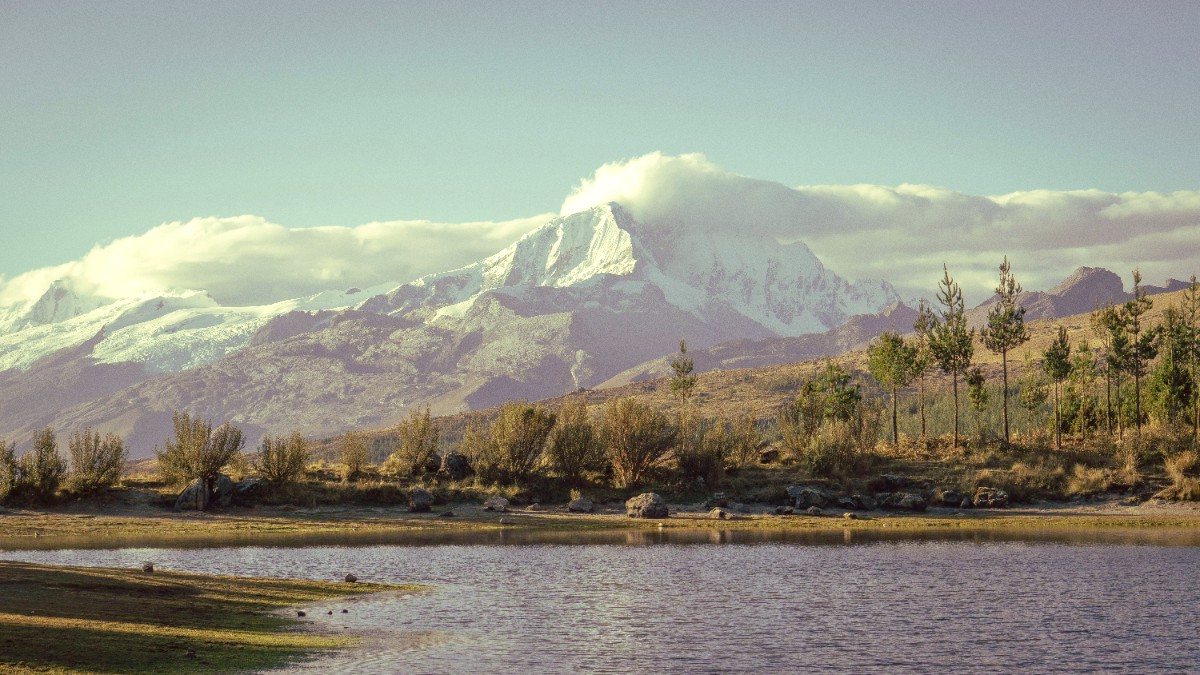
Huaraz And The Cordilleras, Peru
This UNESCO Biosphere Reserve is the centerpiece of conservation efforts, protecting glaciers, high-altitude lakes, and unique flora.
Your choices can affect the delicate ecosystems within Huascáran National Park and the traditional ways of life in the Callejón de Huaylas.
Consider leaving a positive footprint. Your visit can be a force for good, supporting conservation efforts and local economies.
Making travel choices mindful of the natural environment. The delicate ecosystems within Huascáran National Park warrant careful consideration.
Within Huascáran National Park, strict regulations apply to waste disposal, camping locations, and fire use. Always follow park rules.
Water resources in the Andes, especially glacial meltwater, face pressure due to climate change and increased demand.
Sustainable practices extend to what you consume and wear. Making conscious choices supports the environment and local producers.
Look for hotels, hostels, and tour agencies that explicitly commit to sustainable practices. Inquire about their environmental policies before booking.
Your adherence to park rules and mindful resource consumption contribute to the long-term health of the Cordillera Blanca.
Cultural preservation efforts take place in the Ancash region.
Many local communities in the Ancash region actively work to preserve their Quechua language, traditional farming methods, and weaving techniques.
Avoid intrusive photography, especially in private settings or during religious ceremonies. Individuals possess a right to privacy.
Engaging respectfully with locals fosters positive cultural exchange. Listen more than you speak and share about your culture respectfully.
Sustainable travel benefits communities and preserves culture. Choose locally-owned businesses and tour operators with ethical policies.
Your spending directly impacts the local economy. Choose operators supporting community-based tourism, buy directly from artisans, and dine at local eateries.
Choose operators supporting community-based tourism, directing funds to local development projects.
Buy handicrafts directly from local artisans, ensuring more profit stays with producers.
Dine at local restaurants ("menú del día") and stay in locally-owned guesthouses.
Cultural sensitivity enriches your journey and preserves the heritage of the Andean people.
Your choices directly contribute to the local economy and well-being. Consider leaving a positive footprint.
Seek tour operators promoting community-based tourism. These initiatives directly benefit local communities, supporting development projects, education, or healthcare.
When purchasing handicrafts, alpaca products, or other souvenirs, buy directly from local artisans or cooperatives. This bypasses intermediaries.
Choose to dine at local restaurants and eateries, especially those serving "menú del día." Stay in locally owned guesthouses or hotels.
If undertaking a multi-day trek using porters, confirm your tour operator adheres to fair porter welfare standards. This includes providing adequate wages and proper equipment.
While well-intentioned, giving money or sweets directly to children can encourage begging and may discourage school attendance.
Avoid giving money or sweets directly to children on the street.
If you wish to help, donate to reputable local NGOs focused on education.
Contribute to community projects focused on child welfare through established organizations.
Confirm your tour operator's porter policies. Avoid giving money directly to children to promote sustainable community development.
Look for tour agencies that are members of organizations promoting responsible tourism or that clearly state their commitment to fair wages and environmental practices.